Highland Park Parade Shooting: Mom Deals With Grief, Trauma While Parenting
After a 21-year-old gunman killed seven people during a Fourth of July parade in Highland Park, Illinois, one family who survived the carnage is trying to figure out how to move forward.
Amy Kiefer, 39, moved to Highland Park, Illinois, two years ago with her husband, Matt, and their two daughters, 7 and 4. After two years of the ongoing pandemic, Kiefer says she was excited to attend the Fourth of July parade.
Just after the marching band walked by, Keifer heard what she now knows to be gunshots.
"My immediate thought was, 'That's so insensitive, that someone would set off firecrackers at a Fourth of July parade when there are all these shootings," Kiefer told TODAY Parents. Then she heard another round of gunshots and saw people running for cover.
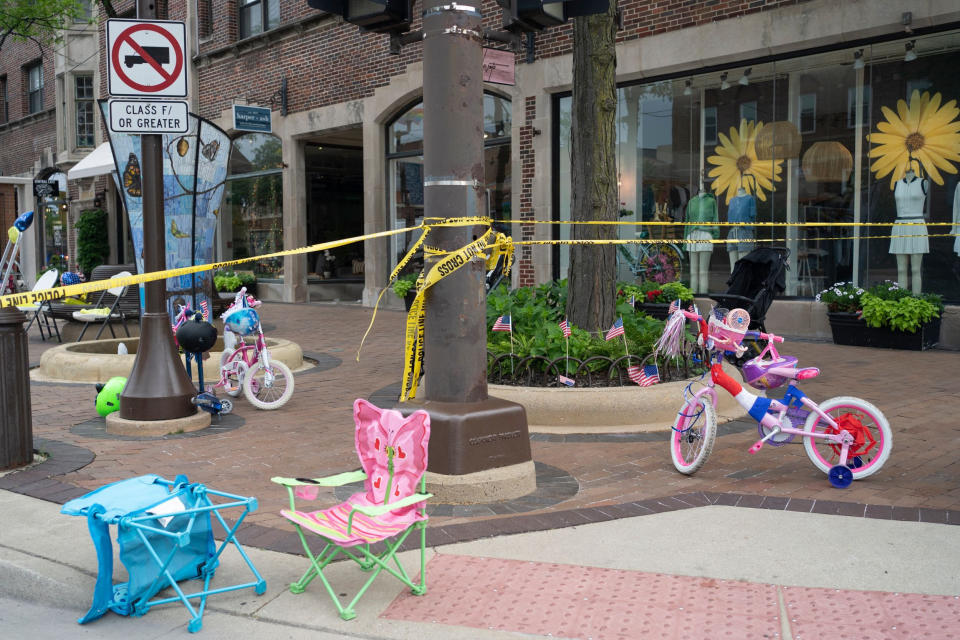
Kiefer picked up her 4-year-old and ran, while her husband ran toward their 7-year-old, who was waiting with her swim team to walk in the parade.
Separated, Kiefer took shelter in a basement of a local restaurant.
For two and a half hours, she waited as authorities searched for the shooter. Her child colored and played with other kids as she texted family members, received updates and finally spoke with her husband. Eventually, he was able to pick them up and take them home.
Reunited at home, that's when reality hit.
'We are navigating uncharted waters'
Kiefer waited to be away from her children before allowing herself to break down, crying in her husband's arms.
“Then we kind of sucked it back up, in order to try and not scare the kids,” she explained. "I don’t know how to explain that this will always be a part of their life story. Our kids will go to college and say they grew up in Highland Park, and people will know the name of our town because of this. What does that mean for them?”
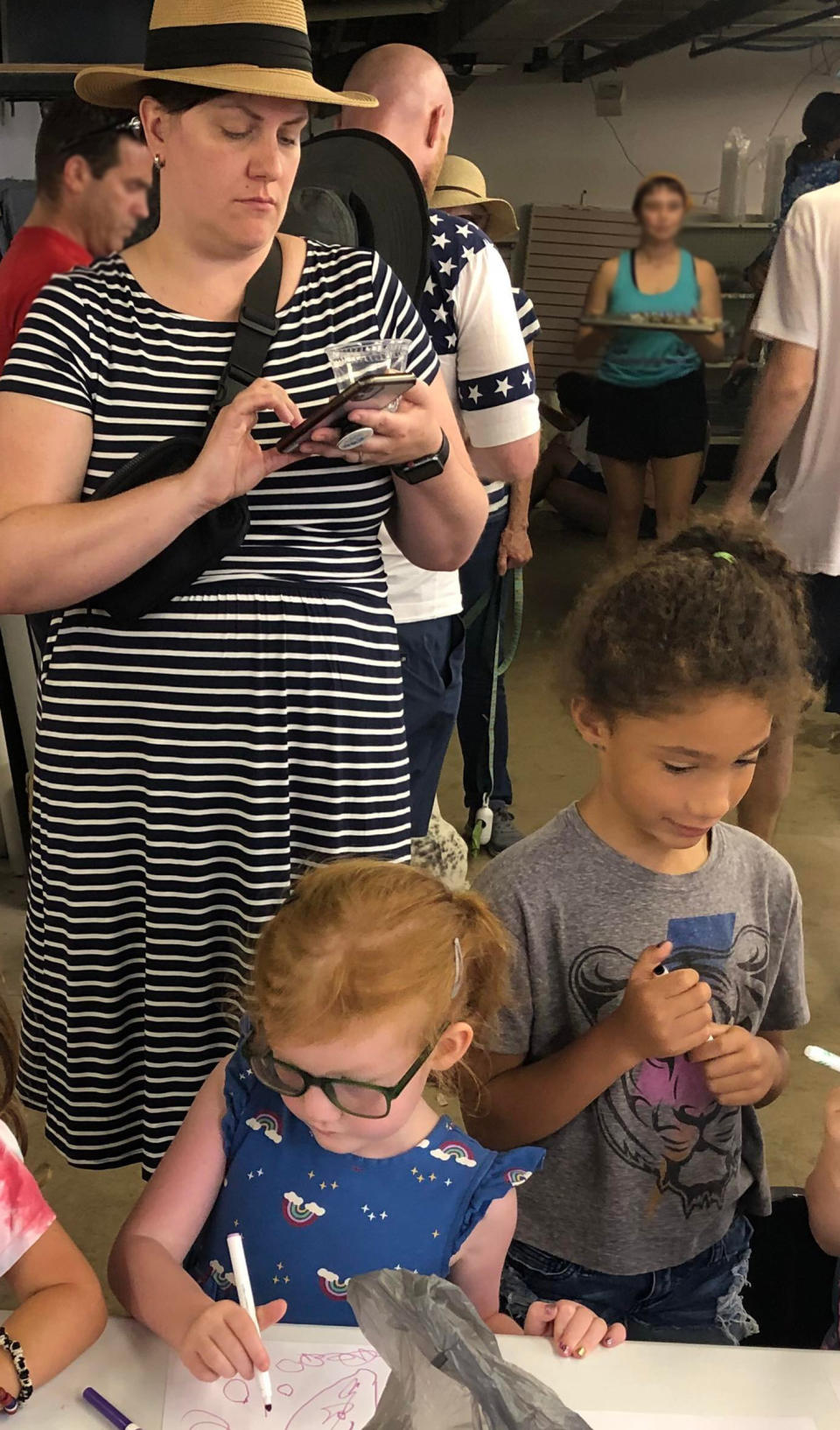
Dr. Jonathan Metzl, M.D., Ph.D., a professor of sociology and director of the Center for Medicine, Health and Society at Vanderbilt University, has been studying post-traumatic stress disorder (PTSD), mass shootings and gun violence in America for 20 years.
He says there's decades of research on the impact mass shootings have on survivors — research mostly focused on combat veterans.
"People in the United States feel like they're in an active combat situation, pretty much all the time," Metzl told TODAY Parents.
Survivors, Metzl says, can experience depression, anxiety, hyper-vigilance, exaggerated startle responses and a fear of similar situations or crowds.
Related: ‘Thank god my wife was there’: One dad details how his family survived parade shooting
"I think you're almost doubly traumatized if you're a parent, because on the one hand you're fearing for your own life," he adds. "On the other, you're trying to protect the life of your child or you feel guilty about having your child in a dangerous situation."
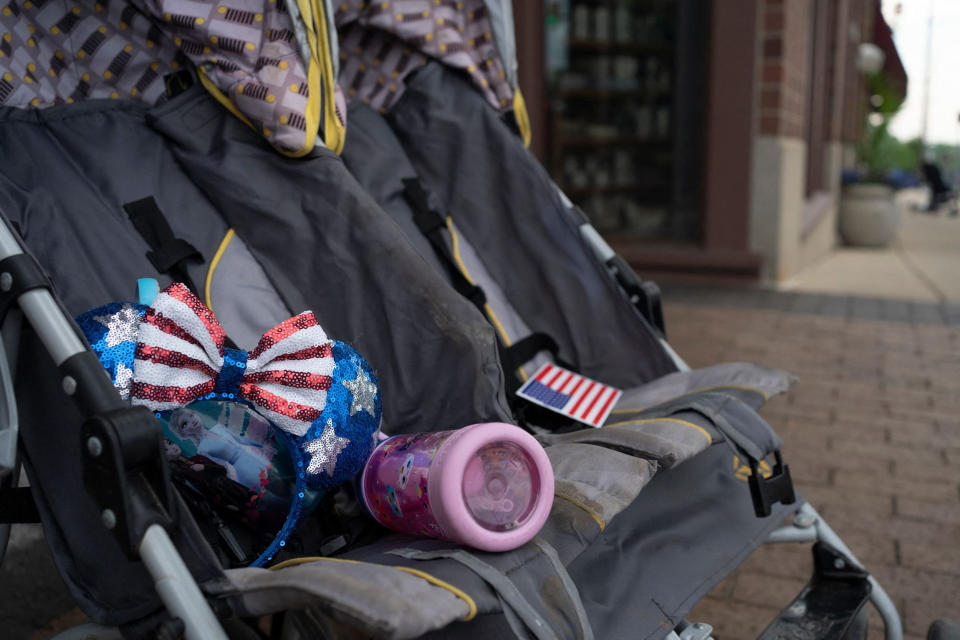
Kiefer says she feels like she's "navigating uncharted waters."
"My husband doesn't want to talk to anybody who wasn't there, and who doesn't know exactly what it was like," she said. "Obviously, I feel different. But we just don't know how to explain that in a minute, that many people were killed and that many people were hurt."
Related: ‘Could have been me’: Student describes how parade shooting unfolded
Kiefer says she is putting together a Moms Demand Action meeting to work on legislation and gun regulation, and wants to find more ways to support moms and women running for office.
"How can we work for change, because we're not the only town that experienced a mass shooting this weekend," she said.
‘Where can I safely send my child?’
Their 4-year-old, Keifer says, is mercifully too young to understand what happened — while clinging to Kiefer as she ran to safety, the little girl kept asking why they were running and what the loud noises were.
All Kiefer could say was that she didn’t know: They just had to keep moving.
“She told me yesterday she doesn’t like fireworks anymore, because they hurt people,” Kiefer added.
Her older daughter was further away and did not witness the carnage firsthand. But now that she knows what happened, she told her mom she’s sad.
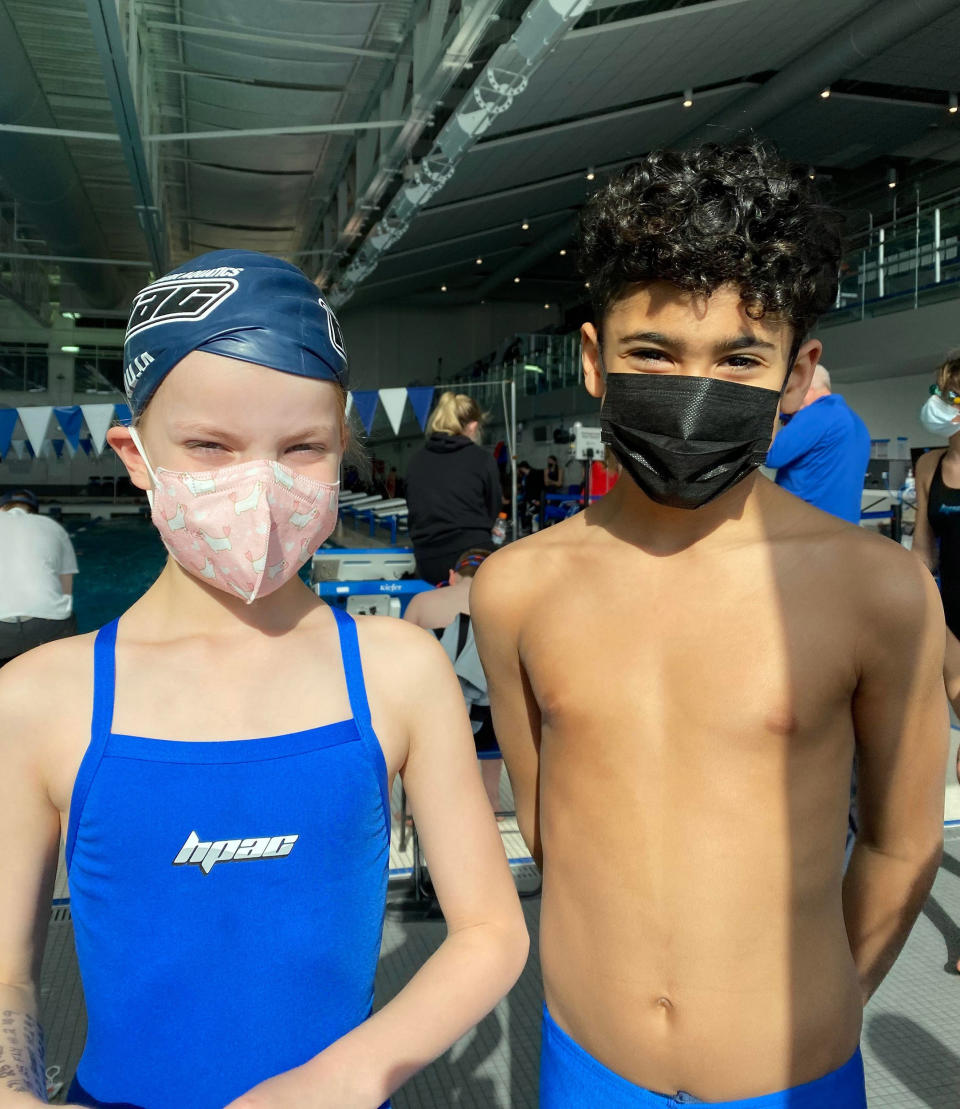
Metzl says protecting your mental health as a parent while simultaneously protecting and caring for your child is the "million dollar question."
"There's no right answer, unfortunately," he adds. "Just being open and honest and transparent about what happened; seeking mental health therapy and counseling; recognizing that recovery is a very slow process and will have ups and downs."
Related: How to deal with grief, pain and anxiety after the Texas school shooting
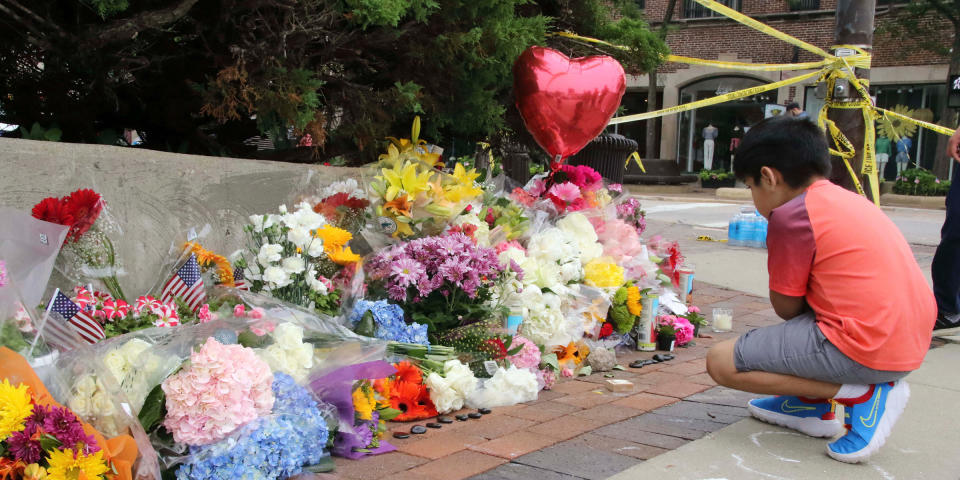
He encourages parents to look for signs of despair and social withdrawal, as well as depression and anxiety. He says parents should keep talking and keep processing — with each other and their kids.
“My older daughter asked me why bad people do bad things, and asked to say a prayer for all the families and all the people who were hurt,” Kiefer said. “She knows that seven people died, but when I ask if she wants more details she says she doesn’t want to know because it makes her sad. So we’re following her lead.”
Metzl says that while it is important for parents and children to "get back into the world," it can be hard for any parent to move forward, especially those who have survived a shooting.
"They're going to be worrying, 'Where can I safely send my child?' And to be clear, I think that's a normal response," he explained. "It's important to really think about what safety means in the context of a country that has so many guns and so many mass shootings."
There are more guns than people in the United States, according to one 2017 report. In 2022, firearms became the leading cause of death for U.S. children.
Related video:

